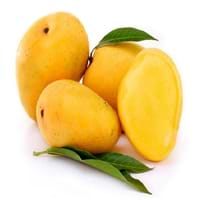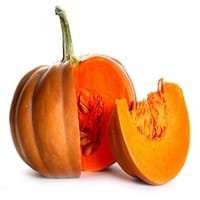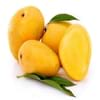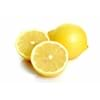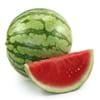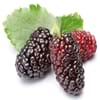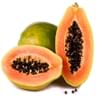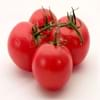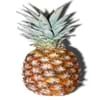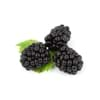Health Benefits
Cancer prevention, Cures fatigue, Heart care, Prevents strokes
Arthritis treatment, Cancer prevention, High Cholesterol Regulation, Lower blood pressure, Helps Prevent cataract, Prevents gall stones, Ulcer treatment, Weight loss properties
General Benefits
Anti oxidant properties, Boosts immune system, Controls blood pressure, Digestive aid, Improves eye vision, Maintains healthy cholesterol level
Boosts respiratory health, Eliminate parasites and infections, Protects against birth defects, Strengthens bones
Skin Benefits
Anti-aging benefits, Brightens and lightens complexion, Skin cleansing, Skin rejuvenation, Treatment of acne, Treatment of blackheads, Treatment of dark spots
Heals sunburn, Hydrates skin, Skin rejuvenation
Hair Benefits
Good conditioner, Prevents hair loss, Treatment of dandruff
Regulates hair growth
Allergy Symptoms
Abdominal pains, Breathing difficulty, Diarrhea, Runny nose, Sneezing, Swelling of mouth, tongue or lips, Watery eyes
Abdominal cramps, Anaphylaxis, Digestive Problems, Dizziness, Eczema, Fainting, Hives, Inflammation, Itching, Tingling sensation in wrist and face, Vomiting, Wheezing
Side Effects
Increase in blood sugar level, Diarrhoea, Weight gain
Kidney and gallbladder diseases
Best Time to Eat
Don't consume at night and before bed, Eat the fresh ones, avoid mixing with any other foods, don't eat after meal., Morning time (before lunch)
Along with meal, Don't eat after meal, Morning time (before lunch)
Vitamin B5 (Pantothenic Acid)
Vitamin C (Ascorbic Acid)
Vitamin K (Phyllochinone)
Phytosterol
Not Available
Calories in Fresh Fruit with Peel
Not Available
Calories in Fresh Fruit without Peel
Calories in Frozen Form
Not Available
Calories in Dried Form
Not Available
Season
Spring, Summer
All seasons
Varieties
Alphonso, Valencia Pride, Badami, Chaunsa, Nam Dok Mai, Glenn, Sindhri, Madame Francique, Kesar and Keitt
Jarrahdale, Peanut, Lakota, Cow, Sugar, Caribean, Red kuri, Buttercup and Pink lady
Color
Orange, Red, Yellow
Blue, Green, Orange, Red, White
Inside Color
Yellow
Creamy Yellow
Taste
Sweet
Creamy, Soft, Sweet
Origin
Southern Asia
Mexico
Soil Type
Clay, Loam, Sand
Clay loam, Sandy loam, Well-drained
Climatic Conditions
Humid, Warm to hot climate
Warm to hot climate
Facts about
- A mango tree can bear fruits even after the age of 300 years.
- Height of a mango tree can be as high as 100 feet.
- In India, mango is known as a symbol of love. Also, a mango basket is considered as the sign of friendship.
- The name pumpkin has its roots in the Greek word ‘pepon’, meaning ‘large melon’.
- The largest pumpkin ever grown weighed 1,140 pounds.
- Pumpkins were once known for removing freckles & curing snake bites.
Other Countries
Bangladesh, Brazil, China, Indonesia, Mexico, Nigeria, Pakistan, Philippines, Thailand
Egypt, India, Indonesia, Iran, Italy, Mexico, Russia, Spain, United States of America
Top Importer
United States of America
United States of America
Top Exporter
Mexico
China
Botanical Name
Mangifera Indica
Cucurbita maxima
Synonym
Not Available
Cucurbita pepo, Squash
Subkingdom
Tracheobionta
Tracheobionta
Division
Magnoliophyta
Magnoliophyta
Class
Magnoliopsida
Magnoliopsida
Subclass
Rosidae
Dillenhidae
Order
Sapindales
Cucurbitales
Family
Anacardiaceae
Cucurbitaceae
Genus
Mangifera
Cucurbita
Species
M. indica
Cucurbita mixta
Generic Group
Cashew
Not Available
Compare Mango and Pumpkin
It is important compare Mango and Pumpkin as both the fruits have a different nutritional value. Their comparison can be done on the basis of their vitamin and mineral content, calories, benefits as well as characteristics, making it easier for us to choose the best fruit for our diet. Their general health benefits are as follows:
Mango Benefits: anti oxidant properties, boosts immune system, controls blood pressure, digestive aid, improves eye vision and maintains healthy cholesterol level.
Pumpkin Benefits: boosts respiratory health, eliminate parasites and infections, protects against birth defects and strengthens bones.
Fruits are also used as a remedy for various hair problems. The hair benefits of Mango are: good conditioner, prevents hair loss and treatment of dandruff and hair benefits of Pumpkin are: regulates hair growth. Some fruits are known to cause allergic reactions. The allergy symptoms of first fruit are: abdominal pains, breathing difficulty, diarrhea, runny nose, sneezing, swelling of mouth tongue or lips and watery eyes and the symptoms of second fruit are: abdominal cramps, anaphylaxis, digestive problems, dizziness, eczema, fainting, hives, inflammation, itching, tingling sensation in wrist and face, vomiting and wheezing. Get sorted Mango vs Pumpkin comparison with the help of fruit comparison tool by fruitvs.com.
